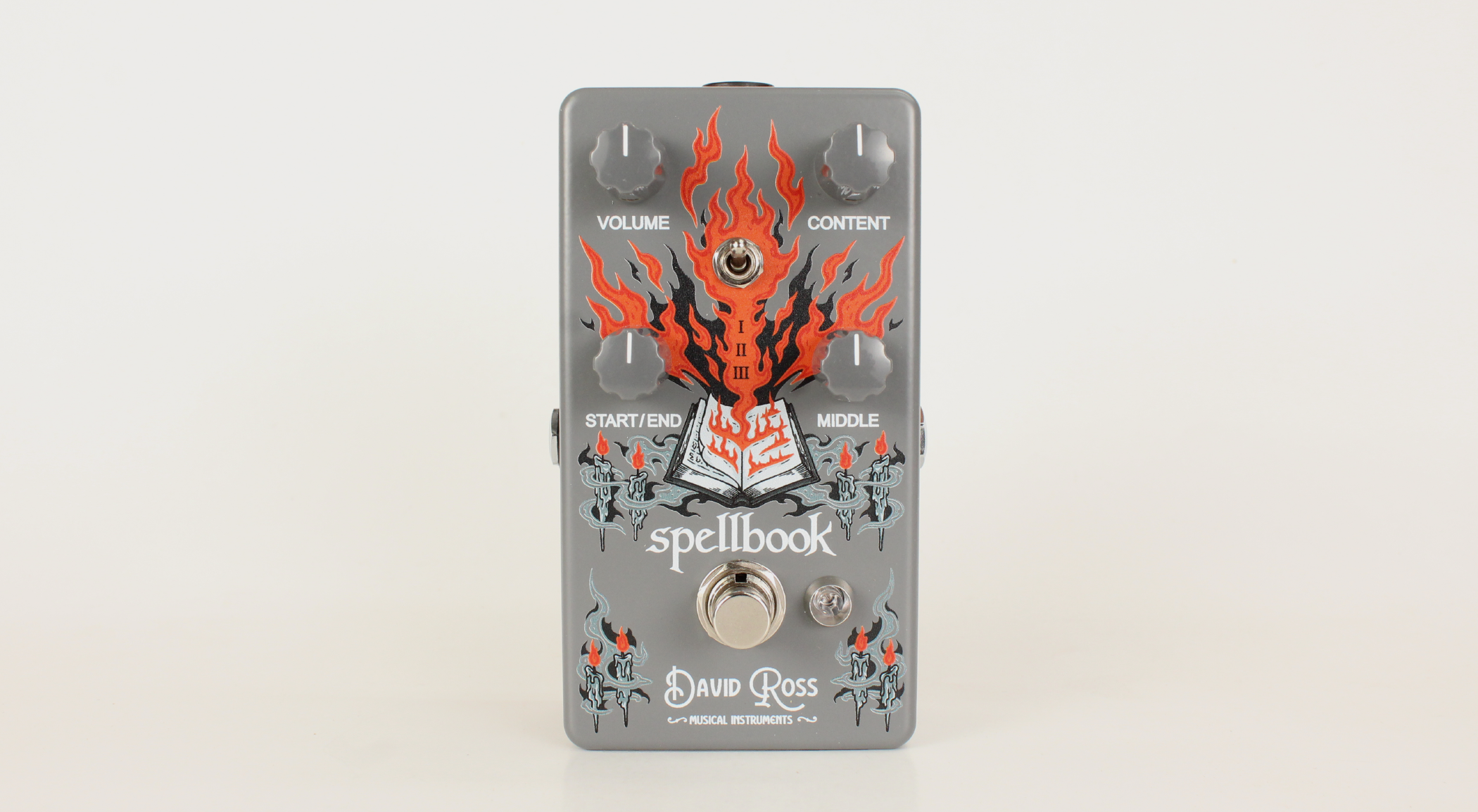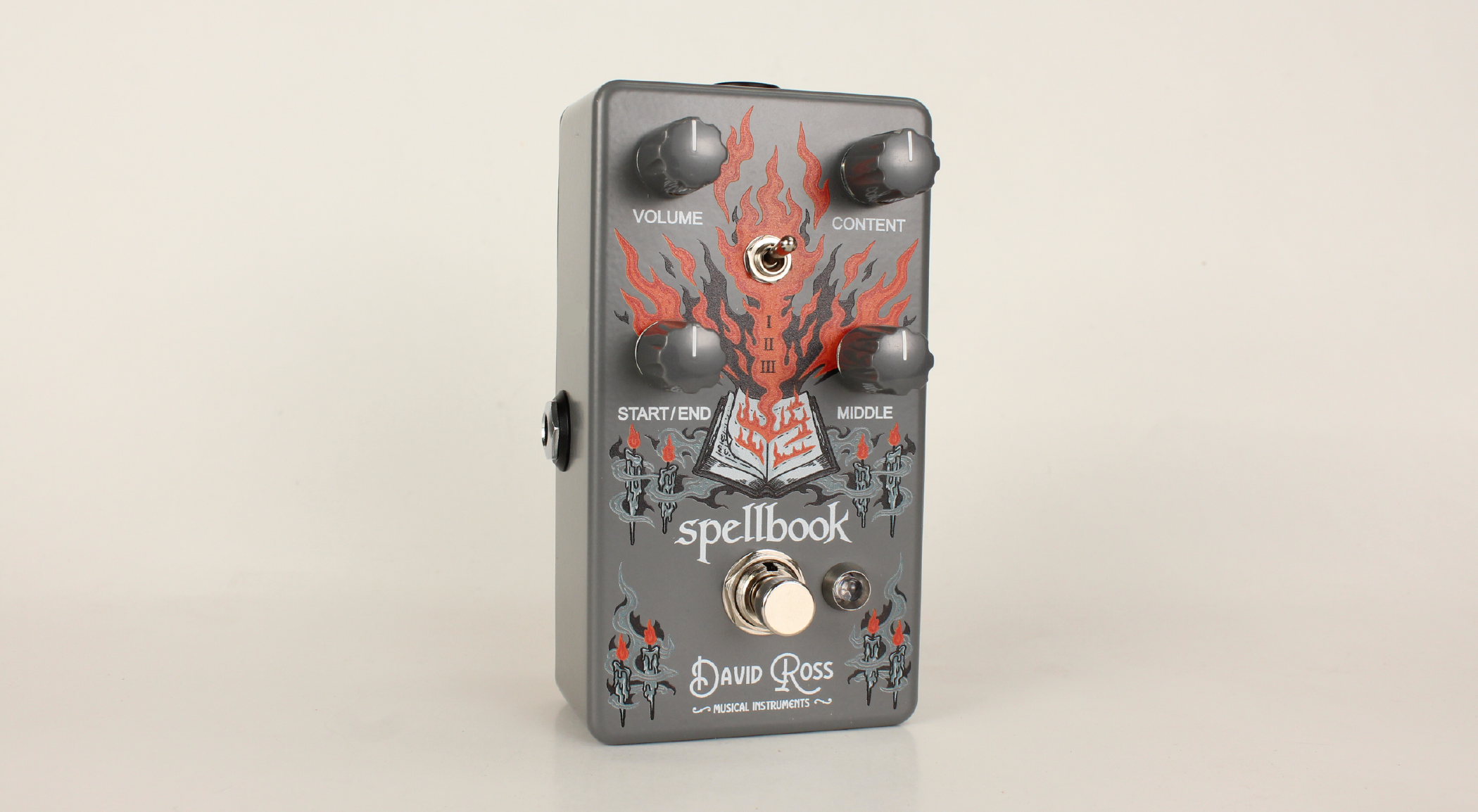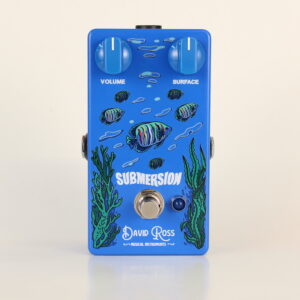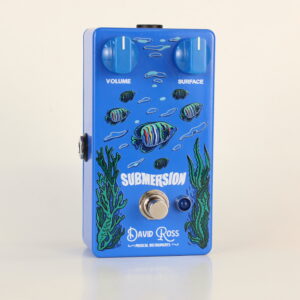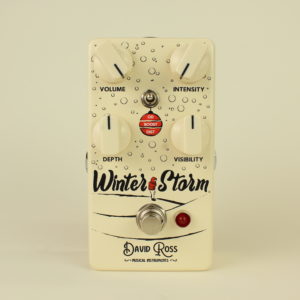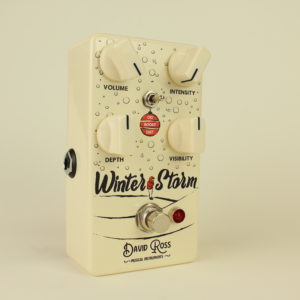Spellbook Guitar Pedal
$200.00
The Spellbook is a self-oscillating fuzz and distortion guitar pedal that can also be used as a stand-alone synthesizer. In addition to the Volume control, the Start/End control is a bass and treble boost with the center position being flat, and the Middle control is a mid boost and cut with the center position being flat. The Content control changes the note generated by the oscillator, and the Mode switch (I, II, III) chooses the frequency range of the oscillator.
Description
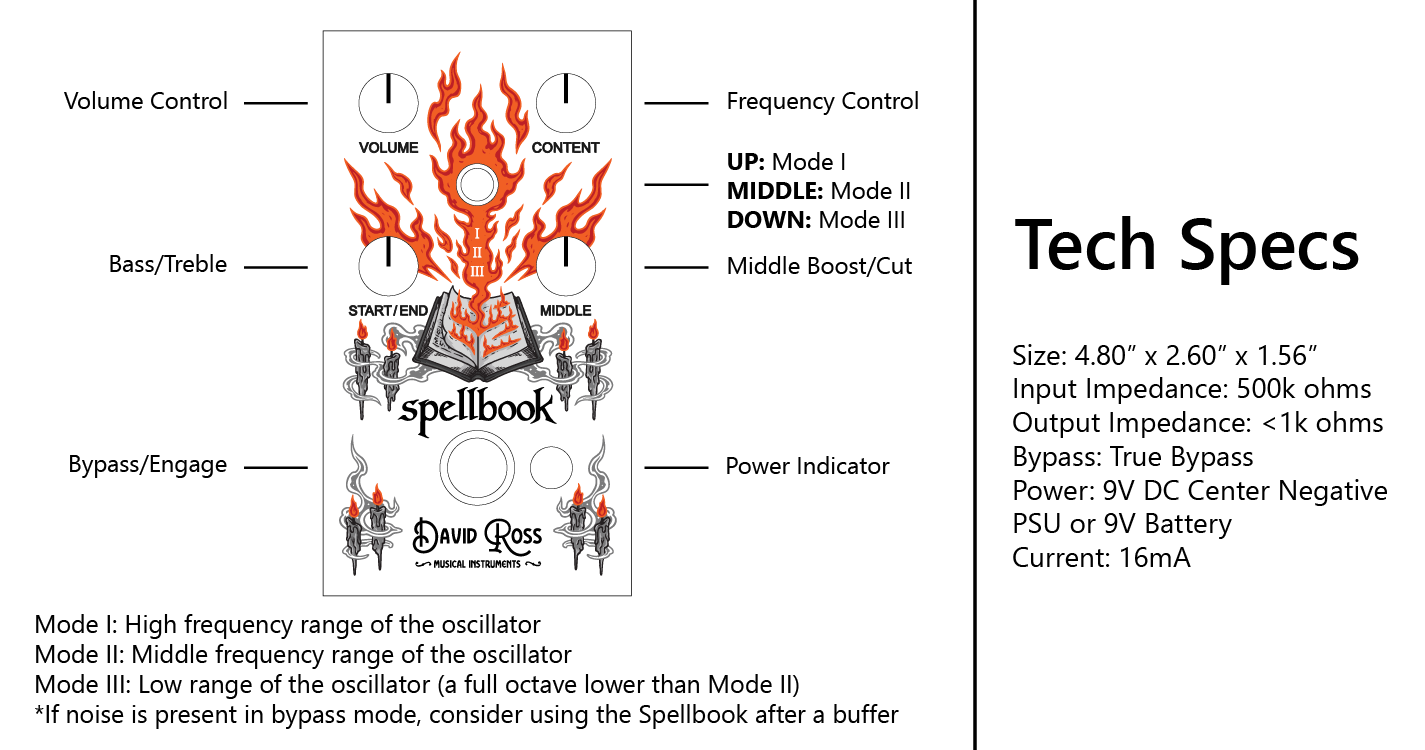
Spellbook Explanation and History:
The Spellbook is a self-oscillating fuzz and distortion guitar pedal that can also be used as a stand-alone synthesizer. In addition to the Volume control, the Start/End control is a bass and treble boost with the center position being flat, and the Middle control is a mid boost and cut with the center position being flat. The Content control changes the note generated by the oscillator, and the Mode switch (I, II, III) chooses the frequency range of the oscillator. Mode I is the high frequency range of the oscillator, Mode II is the middle frequency range of the oscillator, and Mode III is the low range of the oscillator, which is roughly a full octave lower than Mode II. It should also be noted that Mode I has the clearest signal, while Mode III is the most “glitchy” signal, with Mode II being in between.
The Spellbook guitar pedal was created in part as a result of my fascination with the old Boss DM-2 Delay. When you turn the Intensity and Echo controls on the Boss DM-2 all the way up, the pedal starts to self-oscillate. You can change the pitch of the oscillation with the Repeat Rate control. I found this to be a very cool and unusual effect, but for me it had a couple of problems. The first was that the feedback effect would cascade and the volume would quickly get out of control. The second issue was that once the pedal would go into the feedback loop, the guitar signal would become overwhelmed and would no longer be audible. It was around August of 2020 when I said to myself “it would be cool if I could play my guitar through this…” that the idea for the Spellbook was born.
I figured there had to be a simpler way to achieve what I was trying to do, so I looked into a number of guitar pedal schematics but didn’t find a lot of useful information. I did find something called the Howl of Flaming Death mod which ties the input of a guitar effects pedal to its output and then uses a potentiometer to adjust the frequency, but while this was a start, it still presented the same problems I was having. Eventually I started looking at simple synthesizer and oscillator circuits and found a couple of designs that I could work with. At this point I started breadboarding and was able to come up with a design that could generate sounds and could be tamed with a simple volume control. The next challenge was to allow my guitar signal to pass through. I eventually realized that what I needed to do was to massively boost the guitar signal into the oscillator circuit in order for them to become compatible. This was achieved after countless hours were spent going back and forth tweaking parts and values, as well as testing out different circuits in order to achieve my ideal design. Afterwards, I needed to come up with a tone stack to allow for further frequency manipulation and when all was said and done, I had a working prototype.
In total, this process took me nearly three years from having an idea in my head for a guitar pedal to a finished product. I came up with the idea a few months after I started working on the Winter Storm guitar pedal, but I ran into a lot of dead ends with the Spellbook and shelved the project multiple times for many months at a time. I always came back to it because I felt like it was something really different from the vast majority of guitar pedals out there. What I really found compelling about it was how it forced me outside of my comfort zone as a guitar player and a musician. I also found that while there was a learning curve for me initially, I’ve gotten better and better at using it over time. There are sounds that I can achieve with the Spellbook that I haven’t found in anything else I’ve encountered in over 18 years of playing guitar. Interestingly enough, Christopher Horton at ElectrikJam had a similar opinion of the Spellbook in an article he wrote that’s definitely worth checking out. In addition to giving you fuzz, distortion and synth sounds, you can use it as a bitcrusher, feedbacker, or sustainer. The closest comparison I can come up with is the MXR Blue Box and its glitchy sub octave tones, but even so, the Spellbook presents sounds unto itself. It took a tremendous amount of work to bring this across the finish line but now that it’s here, I hope that you’ll check one out!
Lastly, I’d like to give thanks to everyone who supported this project on Kickstarter. Without you, the Spellbook would not be what it is today. Thank you!
Additional information
| Dimensions | 4.8 × 2.6 × 1.56 in |
|---|
